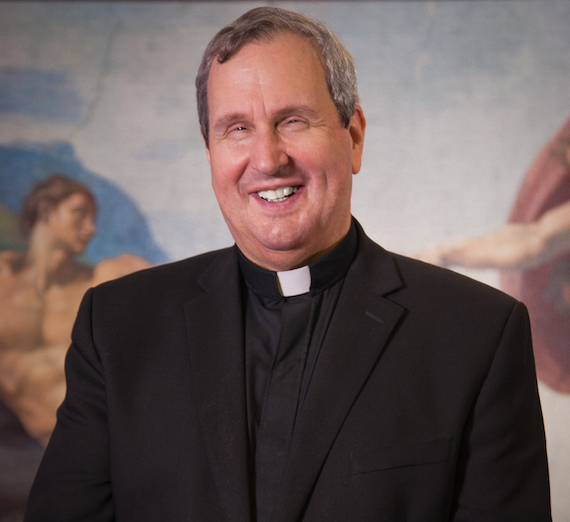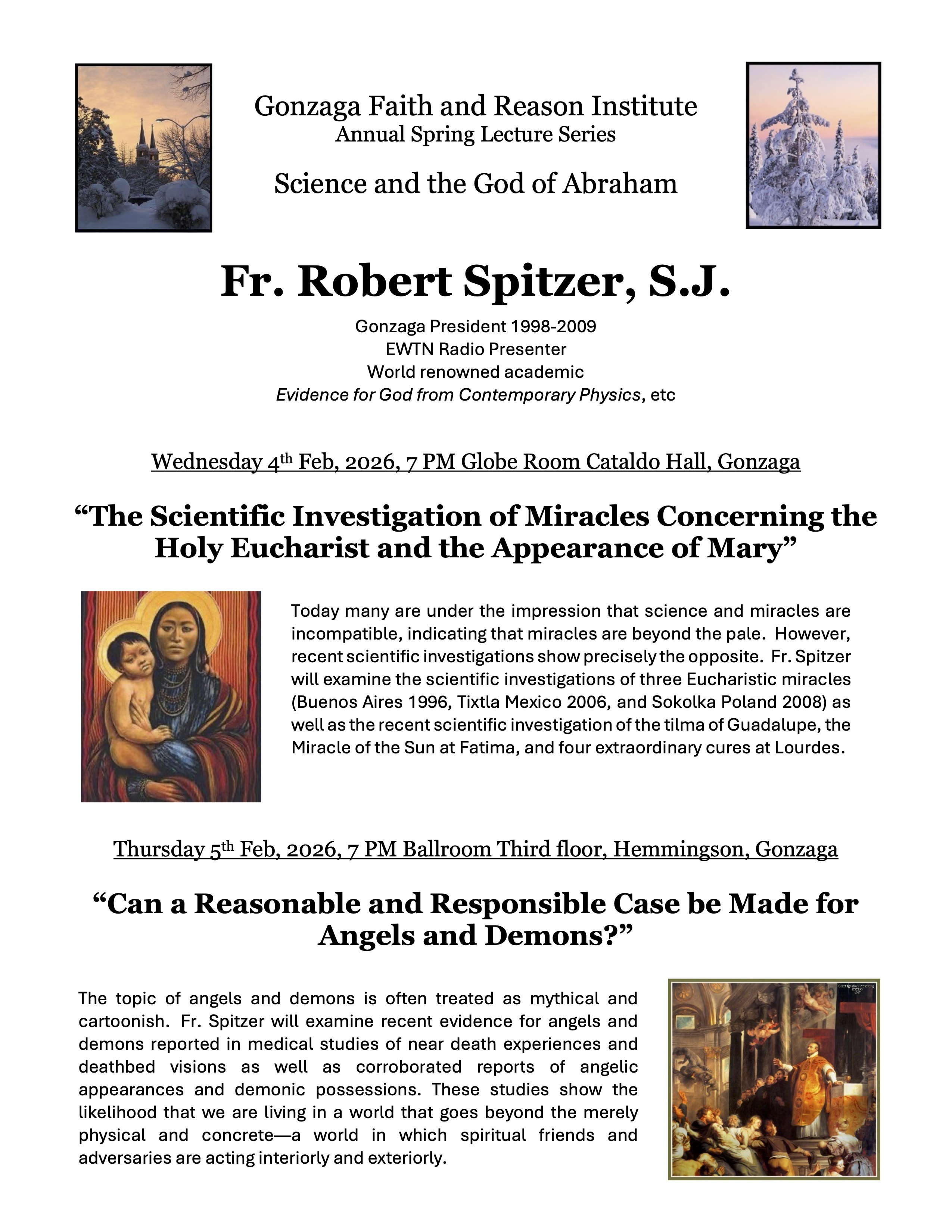| home |
current
schedule |
schedule archive | about |
| DATE |
SPEAKER /
RESPONDENT |
TOPIC |
VIDEO |
| Fr.
Robert J. Spitzer, S.J., visits
Gonzaga University for a series of talks cosponsored by
the Gonzaga Faith & Reason Institute and the Gonzaga
Socratic Club. |
|||
| Wed, Feb 4, 7 pm, Globe Rm,
Cataldo Bldg |
Fr.
Robert J. Spitzer, S.J., Magis
Institute, Former President of Gonzaga University |
"The Scientific Investigation of Miracles Concerning the Holy Eucharist and the Appearance of Mary" Wed,
Feb 4, 7 pm, Globe Rm, Cataldo Bldg
Today many are under the impression that science and miracles are incompatible, indicating that miracles are beyond the pale. However, recent scientific investigations show precisely the opposite. Fr. Spitzer will examine the scientific investigations of three Eucharistic miracles (Buenos Aires 1996, Tixtla Mexico 2006, and Sokolka Poland 2008) as well as the recent scientific investigation of the tilma of Guadalupe, the Miracle of the Sun at Fatima, and four extraordinary cures at Lourdes.
|
|
| Thurs, Feb 5, 7 pm, Hemmingson Ballroom | Fr. Robert J. Spitzer,
S.J., Magis Institute, Former
President of Gonzaga University |
"Can a Reasonable and Responsible Case be Made for Angels and Demons?" Thurs, Feb 5, 7 pm, Hemmingson BallroomThe topic of angels and demons is often treated as mythical and cartoonish. Fr. Spitzer will examine recent evidence for angels and demons reported in medical studies of near death experiences and deathbed visions as well as corroborated reports of angelic appearances and demonic possessions. These studies show the likelihood that we are living in a world that goes beyond the merely physical and concrete—a world in which spiritual friends and adversaries are acting interiorly and exteriorly. |
|
INFORMATION
For information about the Gonzaga Socratic Club or to
propose topics or speakers for future meetings, contact the
Club Director: